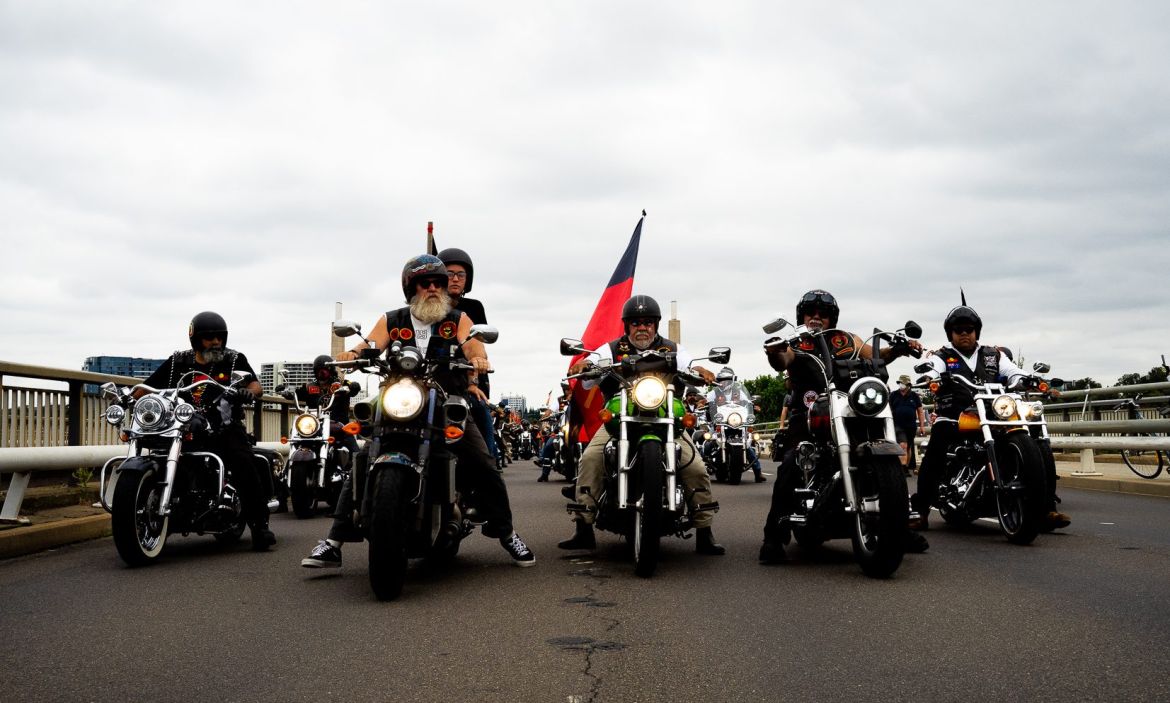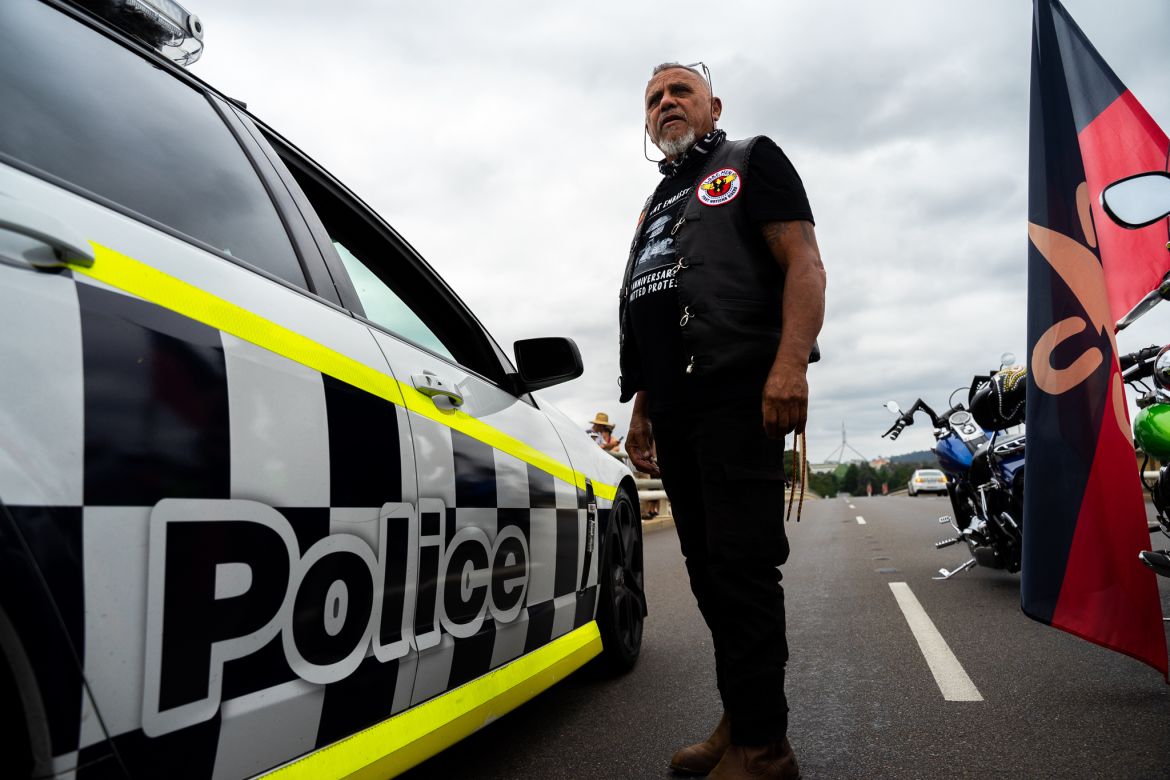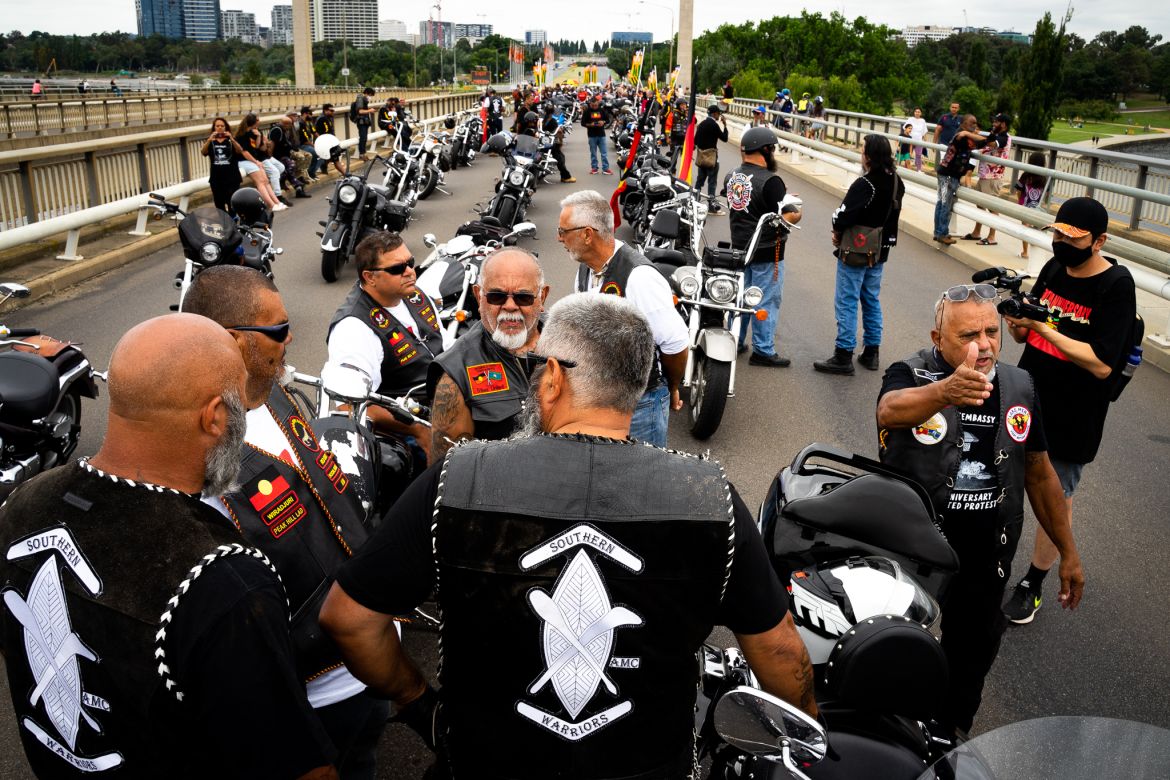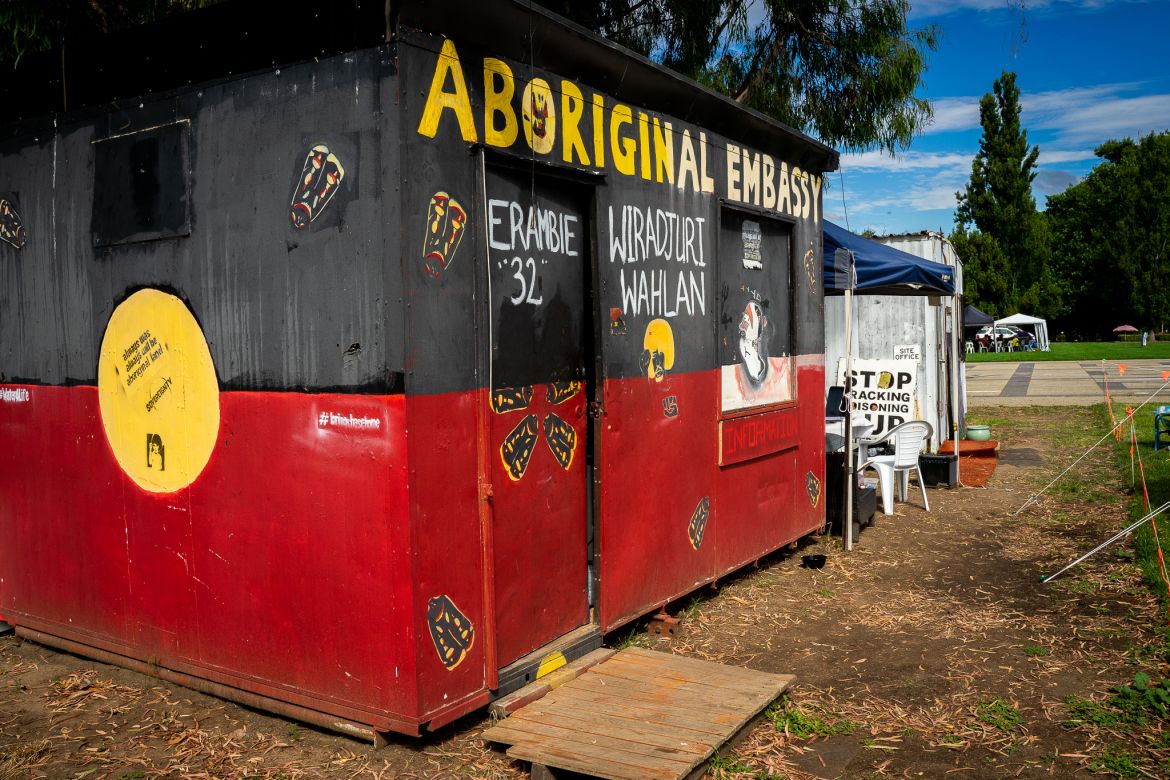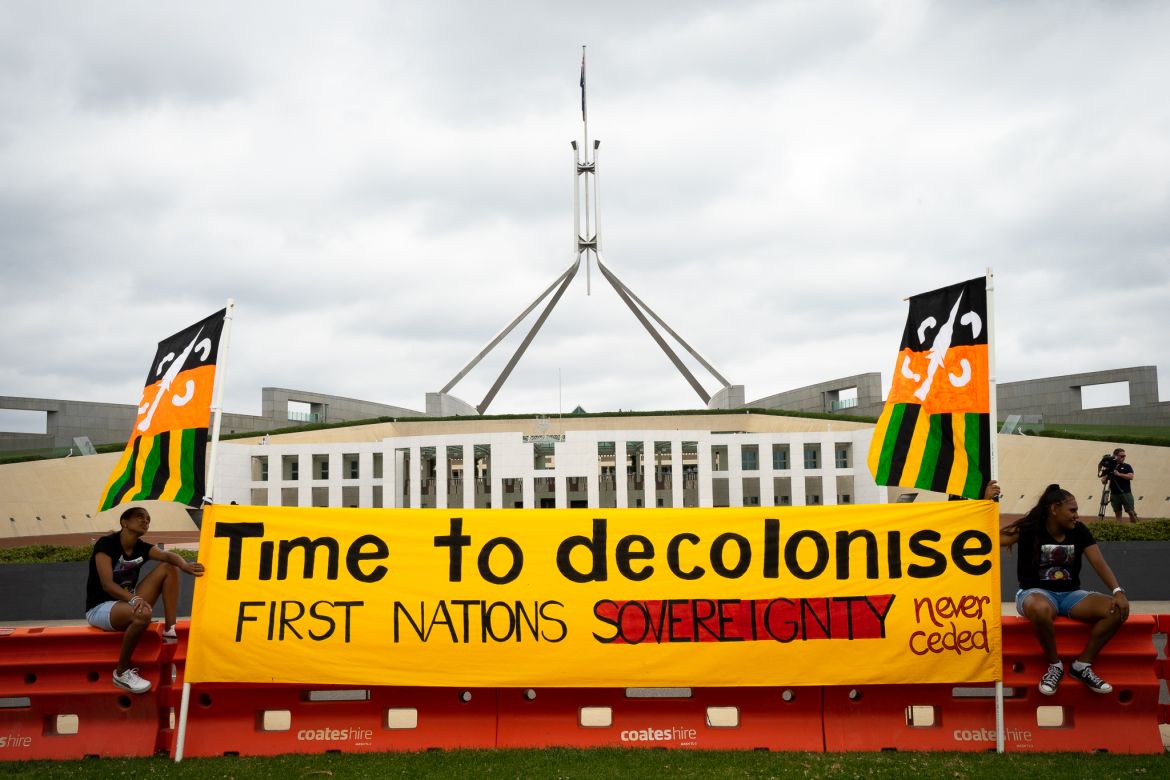In Pictures
In Pictures: Bikers mark 50 years of the Aboriginal Tent Embassy
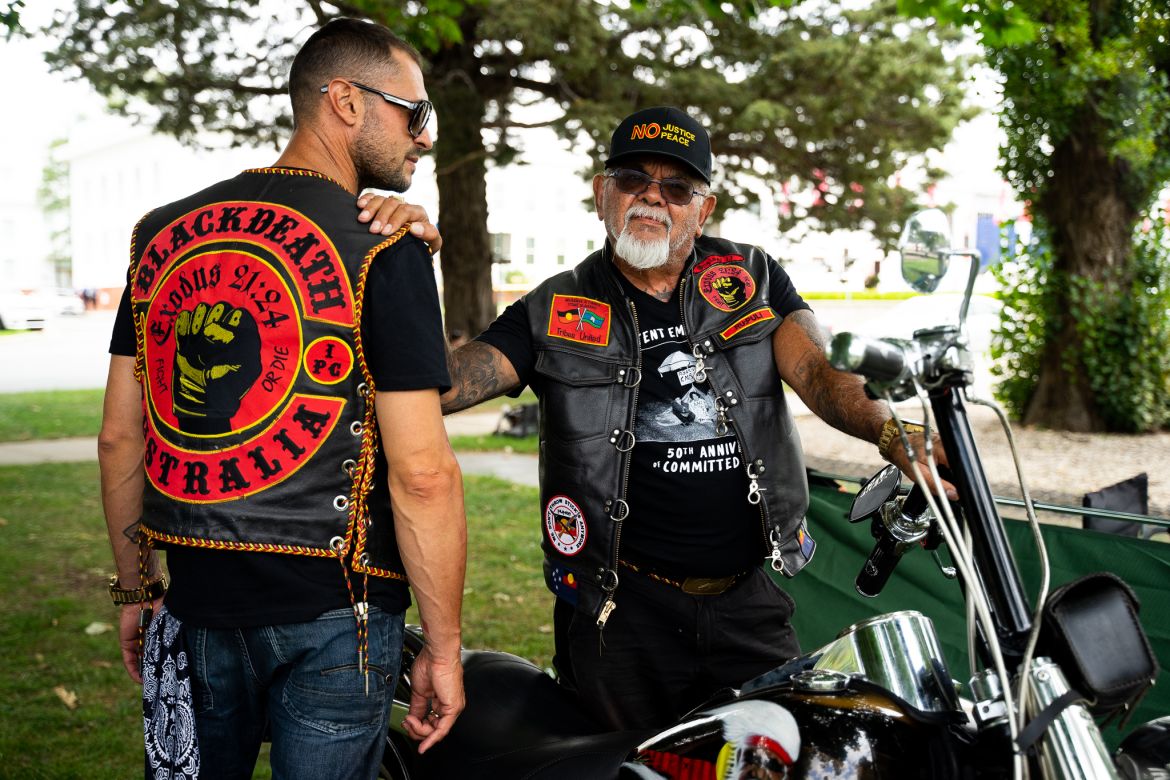
Canberra, Australia – Four Indigenous motorcycle clubs joined forces to lead a protest in the Australian capital Canberra and commemorate the 50th anniversary of the Aboriginal Tent Embassy.
January 26 marks the anniversary of the colonisation of Australia, which began in 1788 when three British convict ships arrived on the continent’s shores. It is a public holiday many Australian nationals celebrate with barbeques, beer and fireworks.
But for many of the country’s Indigenous peoples, it is a day of remembrance and mourning, known as either Survival Day or Invasion Day.
On January 26, 1972, four young Indigenous activists established a protest in front of Parliament House that would become known as the Aboriginal Tent Embassy.
One of the longest-known public protests in the world, the tent embassy is still there and the anniversary is celebrated with a march, speakers and performances at the original site.
It was this march that the Indigenous motorcycle groups – Black Death, LORE Men, MOB Sydney and Southern Warriors – led through the streets.
Despite common misperceptions of biker groups, they are not criminal gangs.
These motorcycle clubs play an important role in Indigenous communities, which face poverty, poor health outcomes and low education rates.
It is these negative challenges the motorcycle groups hope to change.
Cuz – a Darug man and president of MOB Sydney – said his club “is a brotherhood of men from different [First] Nations coming together so we can reclaim our men’s business and be the platform where we can support each other.”
We draw strength from our group and we can go home and be better dads and better husbands. We can be the change we all want to see.”
He added that it was important to respect and acknowledge the Indigenous advocates of the past – such as those who established the Aboriginal Tent Embassy.
“It’s important to remember where we come from,” said Cuz. “For us to move forward we need to respect the past and acknowledge that. And to do that, we need to be here.”
Black Death club spokesperson Mark said his club is an Indigenous political club whose name is a reference to the ongoing issue of Aboriginal deaths in custody.
“Our aim is to help stop Black deaths in custody,” he told Al Jazeera. “And also to prevent First Nations people from going into custody to start with.”
While making up only 3 percent of Australia’s population, Indigenous men make up more than a quarter of the nation’s prison population and more than 470 Indigenous people have died in custody in the last 30 years.
Mark – a Kaurna man – rode from Adelaide, more than 1,000km (621 miles) away and said that one way to achieve lowering the incarceration rate is working with young people.
“We do youth development class, boxing classes [and] cultural classes. And for adults too, we talk them through getting off drugs and alcohol [and] going back to their families. That’s what we fight for.”
He also agreed that it was important to mark the 50th anniversary and acknowledged one of the oldest club members who attended the original Embassy in 1972 and rode seven hours a day to return.
“The anniversary, to me, means a lot. Our leader – Mulla Sumner – was here in 1972, “ he said. “He’s 72 now and he is here again.”
